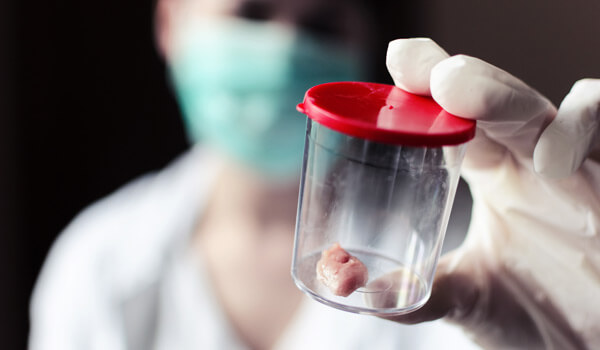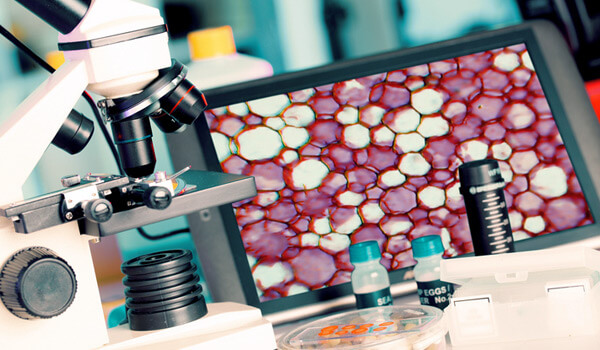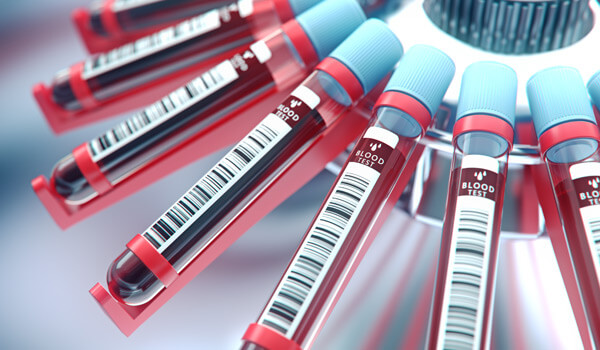Strategic Pilots Incubator and Data Coordinating Center

The Strategic Pilots Incubator (SPI) is a unit within Frederick National Laboratory for Cancer Research (FNLCR). The goal of SPI is to provide support to ongoing CSSI pilot projects at FNLCR and to launch projects that address research gap areas related to new technologies, standards, and preanalytical variables. To address a need identified by SPI to manage data from multiple projects, a pilot for a data coordinating center (DCC) was initiated in FY15. All data sets are publicly available, searchable, and accompanied by formatted metadata.
Tissue Imaging Laboratory

The Tissue Imaging laboratory will explore the suitability of highly-multiplexed imaging for use in translational and clinical research. The initial establishment of the laboratory will focus on two demonstration projects:
- Evaluating imaging mass cytometry (IMC) with validated clinical biomarker assays from the Clinical Pharmacodynamics Program and the Molecular Characterization Laboratory (MoCha). (Collaboration with NCI DCTD)
- Examining epithelial-mesenchymal transition (EMT) at the tumor margins in triple negative breast cancer. (Collaboration with NCICCR)
These projects will also address the impact of the CyTOF’s one micron pixel size on image quality and explore the compatibility of CyTOF image files with downstream image analysis algorithms currently in use for quantifying and visualizing histopathological diagnostic grade images.
High Content Single-Cell Analysis Laboratory

This laboratory will explore technologies for the isolation and analysis of rare cells obtained from liquid biopsies. The first step is to establish a High Definition-Single-Cell Analysis (HD-SCA) platform for the analysis of liquid biopsies. The HD-SCA platform combines immunofluorescent staining and automated digital microscopy to identify individual circulating tumor cells (CTCs), circulating tumor microemboli (CTC clusters), and other rare cell populations to generate liquid biopsy profiles. This assay has potential advantages over other CTC capture technologies, because it analyzes all nucleated cells in blood samples, ensuring a non-biased approach to CTC isolation and allowing a comprehensive analysis of all cell populations.
High-Content Screening of Physical-Based Properties in Biospecimens Phase II

Blood-based biomarkers like CTCs and cell-free DNA (cfDNA) are of great importance in cancer diagnostics due to their correlation with tumor measures and the relative ease of liquid biopsy compared to invasive tissue biopsy. However, differences in the way that patient blood samples are handled prior to analysis can lead to variable results. The High-Content Analysis of Physical-Based Properties in Biospecimens Phase II pilot program, a partnership with NCI OPSO and NCI DCTD, examined the effect of preanalytical variables on the detection and characterization of CTCs and cfDNA in liquid biopsies from breast cancer patients. The data from this project are publicly available through the CSSI DCC and are expected to help the cancer research and diagnostic communities by providing evidence-based best practices for the collection and storage of CTCs and cfDNA.
Thrombosis in Cancer Patients

Thrombosis is a major source of increased morbidity and mortality in cancer patients. To address the need for improved, actionable biomarkers of thrombosis in cancer patients, the Thrombosis in Cancer Patients pilot was launched in FY2015 to advance standardization and provide guidance for the measurement of thrombosis biomarkers in cancer patients. This includes identifying steps during biospecimen procurement, handling, and processing which are critical for optimal specimen preservation and accurate marker detection. The data generated will be widely shared with the research community through publications and the CSSI DCC.

